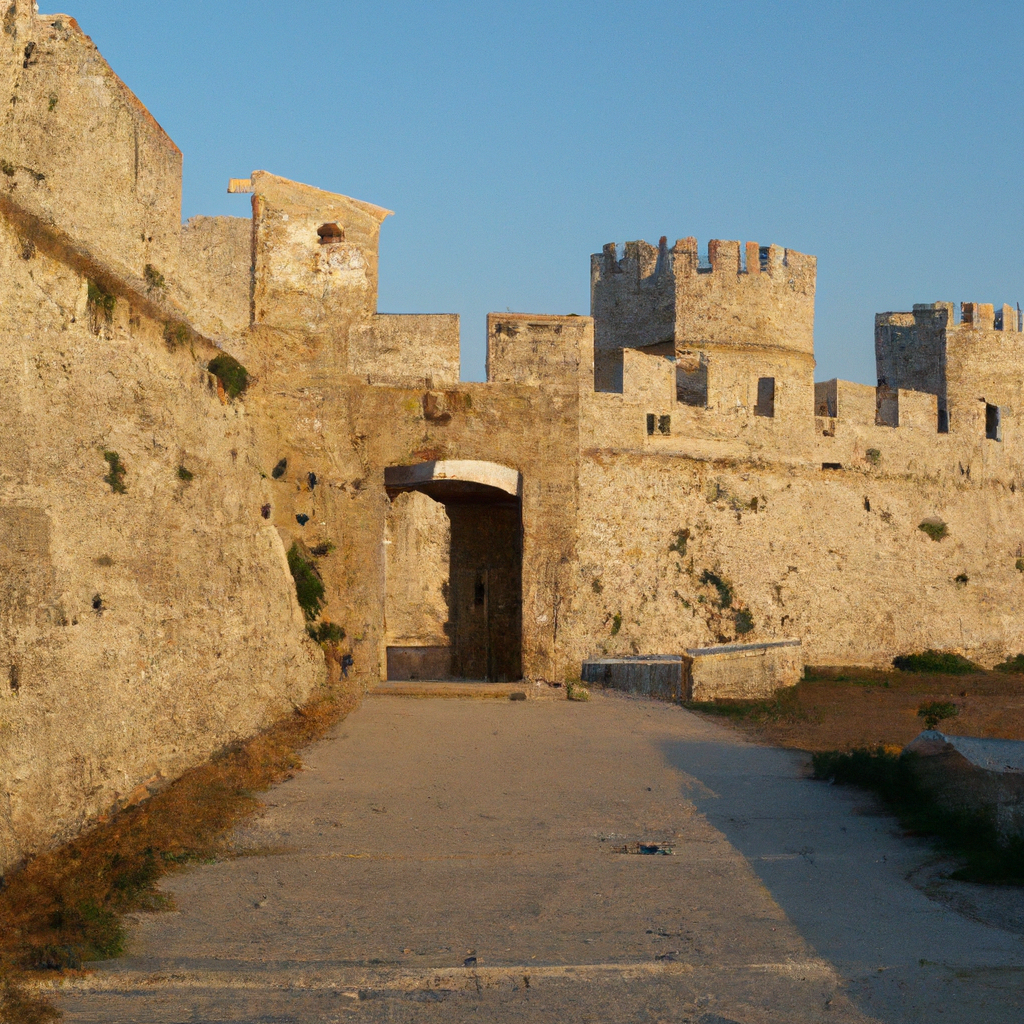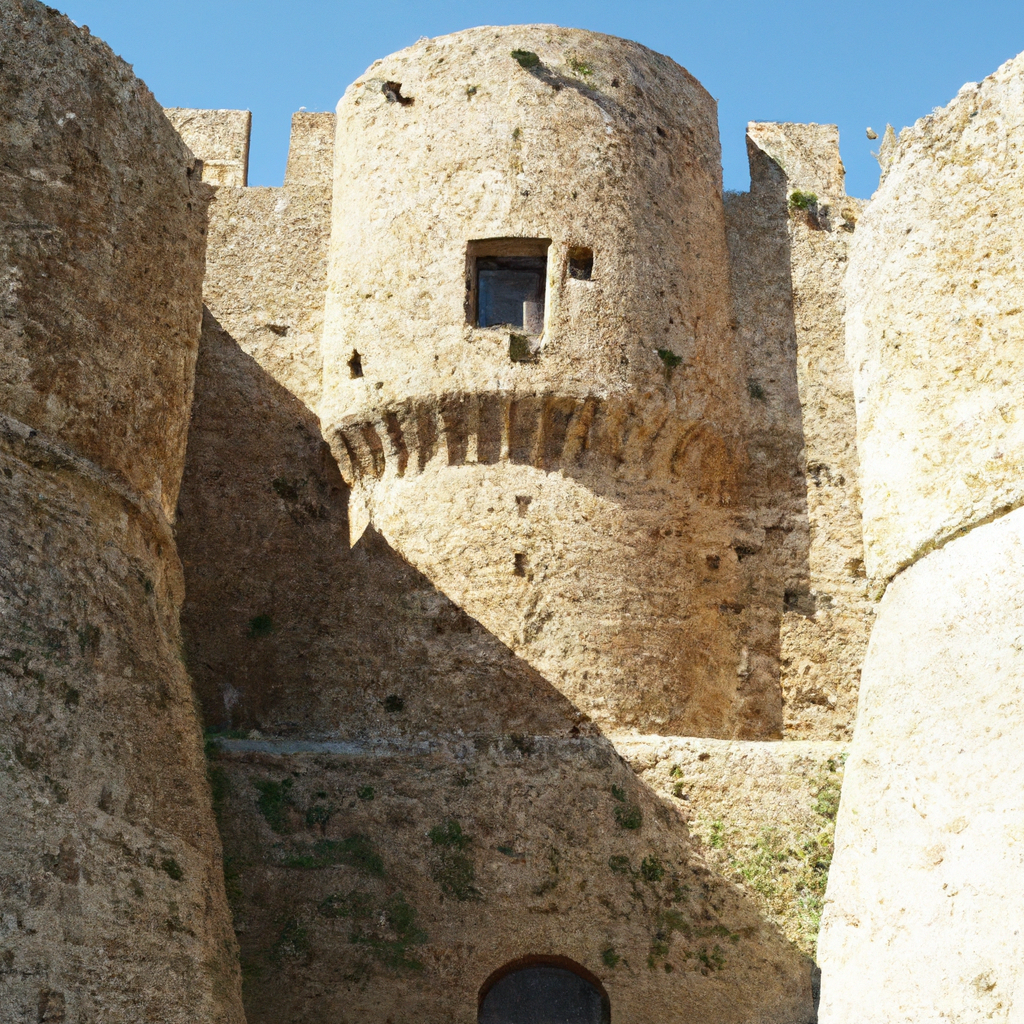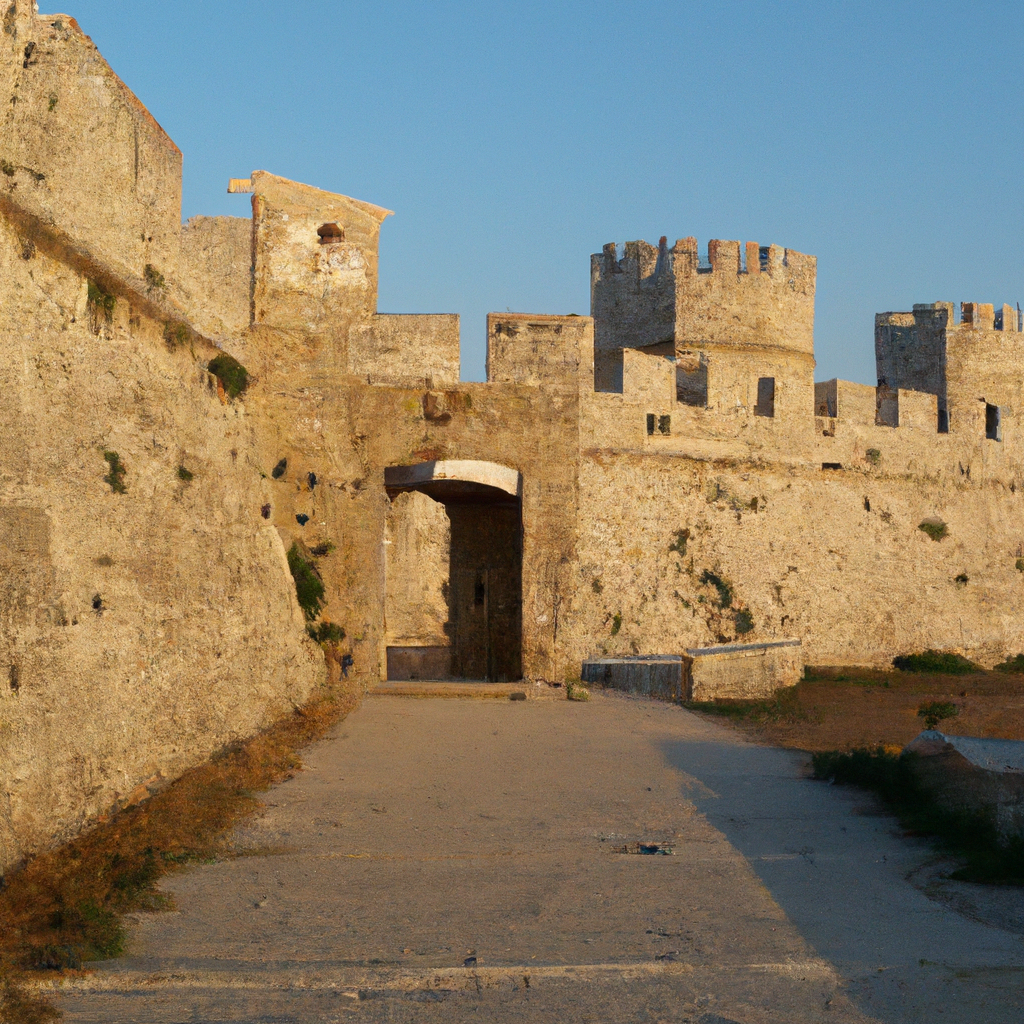Are you ready to embark on a journey back in time? Join us as we explore the rich history of the breathtaking Rhodes Greek Islands. From ancient ruins that whisper stories of empires past, to awe-inspiring landmarks that showcase the island’s diverse cultural influences, Rhodes is a treasure trove of historical wonders waiting to be discovered. Get ready to immerse yourself in a world of beauty, intrigue, and enchanting tales that have shaped this fascinating destination. Step into the footsteps of ancient civilizations and unravel the mysteries of this captivating island.

Prehistoric Era
Neolithic Period
The Neolithic period in Rhodes, also known as the New Stone Age, dates back to around 6000 BC. During this time, the island was inhabited by early farmers who relied on agriculture and animal husbandry for sustenance. Excavations have revealed pottery shards and stone tools from this period, shedding light on the lifestyles and skills of the island’s ancient inhabitants.
Minoan Influence
The Minoans, an advanced Bronze Age civilization from Crete, heavily influenced Rhodes during the 16th and 15th centuries BC. Their cultural and economic influence can be seen in the archaeological remains found on the island, especially in the cities of Ialysos and Kamiros. The Minoans introduced new building techniques, pottery styles, and religious practices to Rhodes, shaping its early development.
Ancient Greek Period
Dorian Settlements
In the 11th century BC, Dorian settlers from mainland Greece arrived on Rhodes, establishing numerous city-states across the island. These settlements, including Lindos and Kameiros, became important centers of trade, art, and culture. The Dorian influence can still be seen today in the ancient ruins and architectural remnants found in these cities.
Rhodian City-State
During the 5th and 4th centuries BC, the city-state of Rhodes rose to prominence, becoming a major maritime power in the ancient Greek world. Its strategic location between Greece and Asia Minor allowed it to flourish as a trading hub and naval force. The city-state was known for its impressive navy, skilled seafarers, and prosperous economy. Rhodes also played a significant role in the colonization of other Mediterranean regions, contributing to the spread of Greek culture.
Roman Era
Rhodes under Roman Rule
In 164 BC, after a series of conflicts with Rome, Rhodes became a Roman province. However, it maintained a considerable degree of autonomy and continued to prosper under Roman rule. The Romans recognized the importance of Rhodes as a cultural and educational center, establishing a renowned school of rhetoric on the island. Many notable figures, including the celebrated orator Cicero, studied under Rhodes’ distinguished teachers.
The Colossus of Rhodes
One of the most iconic landmarks of ancient Rhodes was the Colossus of Rhodes, a giant statue of the sun god Helios. Erected in 280 BC, it stood at the entrance to the city’s harbor and was considered one of the Seven Wonders of the Ancient World. Unfortunately, the Colossus was destroyed in an earthquake in 226 BC, but its colossal remains left a lasting impression on the island’s history.
Byzantine Era
Rhodes as a Byzantine Province
During the Byzantine era, Rhodes became a province of the Byzantine Empire. The island faced numerous invasions and conflicts, particularly from Arab raiders in the 7th and 8th centuries AD. Despite the challenges, Rhodes remained a significant Byzantine stronghold and played a crucial role in defending the empire against external threats.
Conflict with Arab Invaders
The Arab invasions during the 7th and 8th centuries AD posed a significant challenge to Rhodes’ Byzantine rule. The island faced repeated attacks from Arab fleets, leading to considerable destruction and loss. However, the Byzantines managed to repel several invasion attempts, demonstrating their resilience and determination to protect Rhodes from foreign conquerors.

Knights of Rhodes
Formation of the Knights Hospitaller
In the early 14th century, the Knights Hospitaller, also known as the Knights of Rhodes, established their presence on the island. Originally a religious order dedicated to caring for sick pilgrims, the Knights Hospitaller transformed into a military order, using Rhodes as their base of operations. They played a pivotal role in defending the island against Ottoman sieges, establishing a strong fortification system and adopting a rigorous military code.
The Rule of the Knights
Under the rule of the Knights Hospitaller, Rhodes experienced a period of stability and prosperity. Their rule strengthened the island’s defenses, resulting in the construction of impressive fortresses and defensive walls that can still be seen today. The Knights further enhanced Rhodes’ cultural and artistic heritage, which is reflected in the stunning medieval architecture found in the city of Rhodes.
Ottoman Occupation
Rhodes under Ottoman Rule
In 1522, after a prolonged siege, the Ottoman Empire successfully conquered Rhodes, bringing an end to the Knights Hospitaller rule. Although Rhodes came under Ottoman control, the island retained some autonomy and continued to flourish as an important trading center. The Ottomans left their mark on Rhodes, influencing its architecture, culture, and traditions.
The Great Siege of Rhodes
Prior to the Ottoman occupation, Rhodes had already faced a significant siege in 1480 when Ottoman forces attempted to capture the island. The Knights Hospitaller, aided by European allies, courageously defended Rhodes and successfully repelled the invaders. This victory further solidified the island’s reputation for resilience and bravery.
Italian Fascist Period
Italian Annexation of Rhodes
In 1912, Rhodes came under Italian control as a result of the Italo-Turkish War. The Italians sought to establish their influence in the eastern Mediterranean and utilized Rhodes as a strategic outpost. During this period, the island saw significant infrastructural development and modernization, as well as the introduction of Fascist architectural styles.
Construction of Fascist Architecture
The Italian occupiers embarked on an ambitious construction campaign, aiming to reshape Rhodes in line with their Fascist ideals. Grandiose buildings, such as the famous Casa del Fascio, were erected, showcasing the architectural aesthetics of the time. The Italian architecture still stands as a testament to this period of Rhodes’ history.
World War II
The Battle for Rhodes
During World War II, Rhodes became a battleground as Axis forces sought to control the strategically important island. The Royal Italian Navy initially controlled Rhodes but was later replaced by German forces. The island’s strategic location in the eastern Mediterranean made it a key target for both air and naval attacks.
German Occupation
Rhodes fell under German occupation in 1943, and the island’s Jewish population suffered greatly during this time. Many were deported to concentration camps, resulting in significant loss and tragedy. However, the German occupation was short-lived, as the Allies liberated Rhodes in 1945, bringing an end to this dark chapter.
Greek Independence
Rhodes as part of Modern Greece
After the end of World War II, Rhodes was officially reunited with Greece in 1947, following a period of British administration. The island’s Greek heritage and influence were once again emphasized, solidifying its place as an integral part of modern Greece.
Tourism Development
In the latter half of the 20th century, Rhodes experienced a tremendous growth in tourism. The island’s rich history, stunning beaches, and vibrant culture attracted visitors from all over the world. Today, tourism plays a vital role in Rhodes’ economy, with countless visitors exploring its archaeological sites, enjoying its beautiful landscapes, and immersing themselves in its fascinating history.
Archaeological Sites
Acropolis of Rhodes
Perched atop a hill overlooking the city of Rhodes, the Acropolis of Rhodes offers visitors a glimpse into the city’s ancient past. The remains of temples, a stadium, and an amphitheater transport you back to the time when Rhodes was a bustling city-state. The panoramic views from the Acropolis are simply breathtaking, allowing you to appreciate the island’s natural beauty.
Ancient Kamiros
Located on the northwest coast of Rhodes, the ancient city of Kamiros provides a window into the daily life of its ancient inhabitants. The well-preserved ruins offer insights into the layout of the city, including its streets, houses, and public buildings. Walking through the site, you can almost imagine what life was like in this thriving ancient settlement.
Medieval City of Rhodes
The medieval city of Rhodes, a UNESCO World Heritage Site, is a living testament to the island’s rich history. Enclosed within impressive defensive walls, the city boasts a maze of narrow streets, medieval buildings, and grandiose palaces. The iconic Palace of the Grand Master stands as a symbol of the Knights Hospitaller rule and is a must-see attraction for history enthusiasts.
As you explore the rich history and ruins of Rhodes, you’ll discover a fascinating tapestry of civilizations and cultures that have shaped this enchanting Greek island. From prehistoric settlements to medieval fortresses, Rhodes offers a captivating journey through time, all within the embrace of its breathtaking natural beauty.
